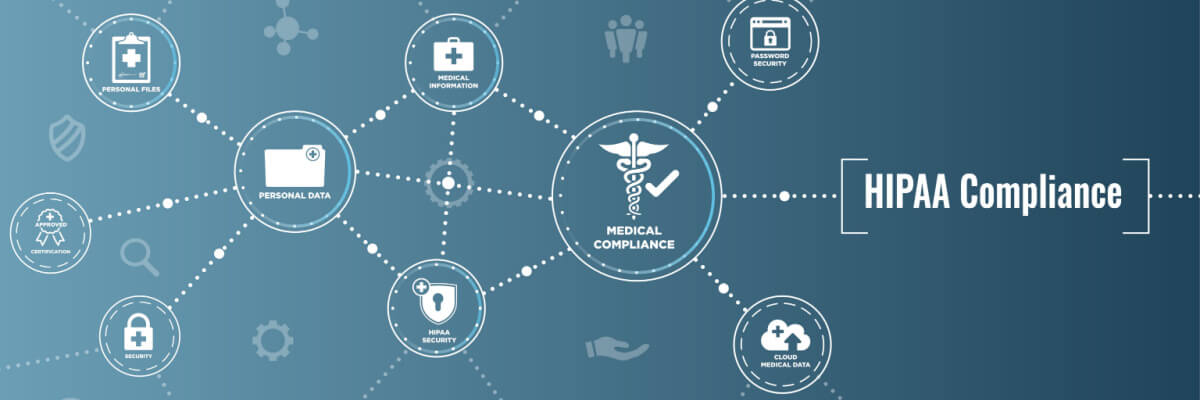Written by Rene Mallari
Contents
Are you seeking a reliable business partner to help you with your medical practice? An expert in healthcare operations, guaranteeing improvements in workflow and income collection?
The healthcare industry is complex and ever-changing. Technological, medical, and business advancements are constantly taking place in the field, even as world and national economies go through dramatic changes.
One way to streamline your operations is through business process outsourcing (BPO) for healthcare. Healthcare BPO offers a solution to ease your worries and helps protect you from an unpredictable economic environment.
This article explores business process outsourcing for healthcare. It covers everything you need to know, from benefits to other essentials.
What Is Business Process Outsourcing for Healthcare?

Business process outsourcing for healthcare is when a healthcare provider – a hospital, a clinic, or even a lab – delegates certain processes to an independent company. This company could be a service provider, third-party vendor, medical billing firm, or BPO company.
A BPO firm specializes in managing front- and back-end activities, including:
- Revenue cycle operations
- Human resources (HR) and personnel training
- Patient and customer relations
- Finance and Accounting
- Supply chain
- Insurance claims
- Information technology (IT)
Healthcare Providers That Need Outsourcing
Every medical organization benefits from outsourcing, including dental offices and outpatient clinics. IT, insurance claims, and revenue cycle operations are best left to outside experts.
But the healthcare organizations that gain the most advantage from outsourcing are:
- Nursing homes and assisted-living facilities. Securing sensitive patient and resident information is a challenge for these facilities. A third-party vendor helps protect personal data.
- Specialist clinics. Orthopedics, oncology, and other specialty practices rely on healthcare BPO services. BPO contractors help process payments, update billing information, schedule appointments, and pay insurance.
- Doctors’ clinics. Third-party teams transcribe voice-recorded reports for doctors and other medical professionals. These teams turn audio files or voice notes into text files.
- Hospitals. Healthcare facilities mostly outsource their IT functions. Service providers build and maintain their IT systems, including hardware, software, data storage, network, and cybersecurity.
Business Process Outsourcing for Healthcare: Market Size and Prospects
Despite a pandemic-induced global economic slowdown, a bright future awaits business process outsourcing for healthcare.
A recent Research and Markets report shows that the global healthcare BPO market might hit almost $442 billion by 2026 from nearly $312 billion in 2022 at a compound annual growth rate (CAGR) of 9.3%. U.S. healthcare BPO will have the lion’s share at an estimated $168 billion by 2026. Meanwhile, China might expand the fastest at a CAGR of 10.6% in the same period.
This growth is thanks to the following:
- The rising pressure on the healthcare sector to reduce delivery expenses and integrate systems
- Stringent enforcement of government regulations such as the Patient Protection and Affordable Care Act (PPACA)
- Mandatory International Classification of Diseases, 10th Revision (ICD-10) implementation affecting U.S. market growth
The study also cites the innovative offerings of healthcare BPO companies. Some launch integrated service models branded by underwriting insurance firms, while others offer claims modernization, analytics, and alternate payment services.
Which Healthcare Services Should You Outsource?

Below are ten non-core or secondary operations that healthcare organizations can outsource.
1. Revenue Cycle Management (RCM)
To outsource RCM, hire a BPO firm to fully or fractionally manage complex administrative tasks, including:
- Denial management. Sometimes claims are rejected. One of the responsibilities of BPO contractors in this department is to analyze why. They also identify trends to avoid future denials.
- Eligibility verification. Ensuring clean claims are sent to insurers reduces resubmission and improves payment collections. It also decreases rejections.
- Medical coding optimization. Healthcare staff understands the medical language. They can read clinical records and convert them into numeric and alphanumeric codes. This process is important to maximize insurance payments for the services rendered.
- Charge capture and billing. Medical companies record rendered patient services and submit them for payment. BPO teams ensure accurate documentation of medical care and coordinate with the billing office for correct charges.
- Accounts receivable follow-ups. Healthcare teams handle denied claims and revise them for full payment from the insurance providers.
- Patient collections. When applicable, insurers shoulder a portion of a patient’s medical bill. The healthcare organization informs the patient of the remaining cost they must pay per visit.
- Claims review and submission. Claims “scrubbing” means checking data, correcting rejections, and editing claims before submission to insurance companies.
2. Medical Coding
Medical coding involves handling patient health records. Clinical coders use a classification system to make sense of such records. They turn healthcare services, diagnoses, and procedures into standard medical numeric and alphanumeric codes. They get all the information they need about a patient from medical records such as doctor’s notes and lab results.
When a patient goes to a medical facility, the clinical coder notes the services or equipment used on the patient. Coders avoid errors by staying updated on coding standards, government regulations, and industry policies.
Clinical coders work with doctors, nurses, and other healthcare workers to break down the services provided for patients. They also look at the records and reports used during surgery and other operations to find the right codes.
The following are some medical coding systems that healthcare providers use:
- Current Procedural Terminology (CPT). These codes are in numeric or alphanumeric characters (e.g., L4386, E0118, and 90387). They are assigned to each diagnostic, medical, and surgical service. Insurance companies issue CPT codes to determine how much to pay a healthcare company or a person making a claim.
- International Classification of Diseases (ICD). The World Health Organization (WHO) provides a set of diagnostic codes to classify diseases. ICD is regularly updated, the latest version being ICD-11, created in January 2022.
- Diagnosis Related Group (DRG). Public health insurance institutions, such as Medicare and Medicaid, and private insurers apply DRG. This is a system to categorize hospitalization costs. It aids insurers in calculating the expenses they shoulder for a patient’s use of medical facilities and services.
- Healthcare Common Procedure Coding System (HCPCS). This group of codes details the services, policies, supplies, and products that public and private health insurance claimants can get.
3. Medical Billing
Medical companies use software to generate superbills and insurance claims. They process and send claims to insurance companies and government agencies to get paid for patient services.
However, the policies and regulations related to medical billing are complex and tedious. Medical billers must update invoices to avoid errors and keep up with regulatory changes.
Healthcare organizations outsource medical billing to benefit from a BPO provider’s expertise. They often allow BPO firms to obtain patient data, file claims with insurers, and follow up on payments until bills are settled. This helps them maximize insurance reimbursements and reduce non-payment or claim denials.
In addition, the whole billing process can span a few days to several months. The time it takes to complete a transaction depends on how well a BPO company handles claims and collects payments.
4. Data Entry
Healthcare institutions delegate large numbers of medical records for data entry. All these documents require constant management and updating. A BPO firm inputs data into its computer database systems to process it.
Medical information includes the following:
- Patient health insurance covers the full or partial medical costs of a patient.
- Clinical records detail a patient’s medical history, progress, medication, diagnostic exam results, and clinical findings.
- Patient test reports comprise all test data from a patient’s admission date until their release.
- Laboratory reports and orders contain samples of a patient’s urine, blood, or body tissue.
- Prescriptions and drug inventory refer to the stock of pharmaceutical products, including the contents of sealed or opened containers.
- Nursing records and progress notes show detailed accounts of patient treatment, medication, care, and progress.
- Patient assessment forms evaluate a patient to identify the possible diagnosis and treatment required.
5. Medical Transcription
Voice-recorded medical reports are not ideal for record-keeping. Instead, records should be kept as text. But transcription is time-consuming and tedious; it takes healthcare professionals away from patient service.
So organizations prefer to outsource their medical transcription to ease their workloads. BPO firms offer transcription services to free healthcare professionals from this burden. Medical professionals can work faster and better as they focus on patient care.
6. IT Functions
Medical companies hire a third-party vendor to meet IT requirements. The BPO company provides a team of experts to help with digitalization and technical projects.
A BPO provider oversees and improves IT systems and processes in:
- Electronic health-related information
- Patient databases
- Electronic billing and payment systems
- Cloud computing networks
- Coding and billing procedures
Healthcare organizations must use state-of-the-art technologies to help them stay ahead of the competition and continue delivering high-quality patient care. IT specialists handle complicated technology such as data security, network management, and help desks.
7. Supply Chain Management (SCM)
SCM outsourcing turns over supply chain activities to a BPO provider. The process includes:
- Sourcing the materials and products
- Purchasing resources
- Setting up logistics
- Sending products to customers or professions
The healthcare sector’s supply chain is dispersed and complicated. So a BPO partner manages supply and demand between and across the groups involved.
8. Finance and Accounting
Outsourcing finance and accounting allows service providers to manage several tasks, including auditing, budgeting, bookkeeping, and financial analysis. A BPO firm provides a team comprising:
- Accountants
- Financial analysts
- Data analysts
- Debt collection professionals
- Insurance claims processors
- Payroll processors
- Tax auditors
- Accounts receivable specialists
- Budget planners
A BPO firm helps healthcare companies reduce financial losses and improve revenue collection. A healthcare company gets access to the latest financial technology to get accurate and updated data on its cash flow.
9. HR and Personnel
Third-party firms also handle HR tasks for medical institutions. They take charge of the following:
- Screening, interviewing and hiring new talent
- Tracking shifts and pay schedules
- Choosing benefits and pay
- Managing staff
- Explaining legal and regulatory requirements
The HR activities that healthcare companies outsource are people-intensive and repetitive processes. Outsourcing helps them use third-party professionals’ expertise, experience, and technology.
10. Customer Relationship Management (CRM)
CRM takes place when healthcare providers talk to potential and existing patients. The process provides patients with correct information, timely support, and vital insights.
Healthcare firms work with a third-party customer service expert to bring in new patients and improve communication with existing ones. Thus, outsourcing CRM helps healthcare firms build and maintain a patient base.
A BPO company uses healthcare CRM software compliant with security regulations. The technology does the following:
- Stores and organizes different patient data
- Automates marketing and sales functions
- Enhances patient acquisition, care, and engagement
Advantages of Business Process Outsourcing for Healthcare

Check out the seven benefits of business process outsourcing for healthcare.
1. Scalable Operations
A BPO provider offers flexibility for your processes and needs. It gives your medical practice extra help when patient visits and billing tasks are overwhelming. It can also decrease staff size when transactions and patient volume are low.
One benefit of scalable operations is that you are not required to periodically pay the BPO partner’s fixed rates for medical BPO services. The amount depends on the number of people hired outside the company to handle the processes. The BPO provider charges more when the business picks up and less during a slowdown.
Outsourcing some of your healthcare operations is another boon. Delegating certain tasks relieves your in-house team because the provider handles the rest. Your department can focus on taking care of patients and getting them involved while the BPO partner takes care of other tasks.
2. Reduced Billing Errors
BPO providers employ experienced and well-informed medical billers who can handle complicated claims. They give their employees full training and test their knowledge and skills. Outsourced clinical billers submit accurate, up-to-date, and timely claims. Through this effort, they reduce errors and rejections.
Billing delays, errors, and bad strategies for collecting payments hurt income. Billing errors lead to non-payment, confusion, and complaints from patients.
Partnering with a BPO organization specializing in medical billing reduces costly inaccuracies. Avoid duplicate billing, incorrect patient information, and authorization errors with the right provider.
3. Cost Savings
Healthcare organizations outsource primarily to save money and resources, especially for hiring, training, and non-monetary compensation.
Delegating healthcare activities means you no longer have to spend on new furniture and office equipment. You also no longer have to spend on software and hardware, extra working space, and other supplies to set up your in-house team, either.
Maintaining an in-house department is costlier than outsourcing. You need insurance, retraining, equipment, and system maintenance. On the other hand, a service provider takes care of all these resources. So you have more money to spend on other core functions.
4. Assured Compliance
Medical coding and billing are more difficult due to ever-changing government policies. Healthcare organizations must stay current on Medicaid and Medicare policies, requirements, and updates. Non-compliance might result in heavy fines, non-financial penalties, establishment closure, or imprisonment.
But predicting new legislation, changes, and updates while you are busy caring for patients is a challenge. So you need a BPO firm to keep up with any new industry information and federal healthcare rules. Firms like this ensure that you are always compliant.
5. Various Communication Channels
A seasoned healthcare BPO company gives patients different ways to get in touch with your facility. Patients can contact your office the way they prefer, and the BPO partner can easily meet them on their chosen platform.
Below are the communication channels available.
- Standard phone calls. Patients use telephones or fixed-line phones to call you. Many still prefer this traditional technology for convenience.
- Short Message Service (SMS). Short text messages are transmitted to your office via smartphones or mobile devices. SMS is easy and can alert you on the spot.
- Email. Patients send questions and messages about their concerns that require answers. They can send documents, images, and files more securely and privately.
- Voice over internet protocol (VoIP) telephony. Similar to a standard phone, patients can contact the office with fast internet and a VoIP phone.
- Live chat. A small pop-up display on your website allows patients to post messages and interact with a live agent.
- Social media. Patients receive your answers or help through social networks such as Facebook, Instagram, TikTok, LinkedIn, or Twitter.
- Self-service portals. Patients visit your web pages to try to answer their questions themselves. Your website offers easy-to-understand resources such as a frequently asked question (FAQ) section.
6. Improved Revenue Collection
BPO providers specialize in insurance claims and patient payments. These firms track and closely follow any outstanding claims or partially settled accounts receivable. They pursue such claims until you receive the entire reimbursement.
Enhance your income stream with the help of specialists who can collect payments quickly, ethically, and legally. A BPO firm also assists in reducing or eliminating medical coding and billing mistakes. It files accurate claims with insurers for a higher chance of fast approval and payment.
7. Increased Focus on Patient Care and Service
Secondary operations are vital. But they take time and effort away from what you do best: patient care and service. Outsourcing back-office processes frees you from time-consuming and tedious tasks.
Outsourcing enables you to spend valuable resources on improving patient treatment and engagement. You get higher income and earn patient loyalty when you consistently satisfy and pay attention to their needs.
With laser-focused attention comes business growth and competitive advantage. This edge makes your medical practice stand out from the competition.
Risks of Business Process Outsourcing for Healthcare

Business process outsourcing for healthcare comes with some possible drawbacks. We have identified three of them:
1. A Lack of Management Control
When you give work to an outside service provider, you let it run things to reach the goals you both agreed on. The BPO company might stop using your company’s standards and procedures and start using its own.
Keeping the control level you want is difficult with a third-party team working at a different location. You cannot personally train and supervise the team.
By contrast, an in-house team is more manageable. Problems or issues are addressed quickly as you and the internal team are on the same site.
2. Hidden Costs
Some third-party vendors do not fully disclose all their service charges at the onset. Others might not show their complete list of fees, pricing plans, rates, and costs.
Hidden or unexpected costs are hard to figure out. They might include the cost of firing an employee, needing more staff, requiring extra-legal services, and experiencing work interruptions. These incidents dent your budget and might affect your business relationship with the BPO partner.
Service providers might also request a revenue percentage. The more they collect payments for you, the higher the share they will ask. Other hidden fees include startup charges for sending, generating, and printing reports and cancellation or pre-termination fees.
3. Inadequate Security Protocols
When hiring a service provider to handle tasks, ensuring that patient data and information are safe is crucial.
Connecting your system to the BPO firm exposes you to data breaches or cyberattacks. Online intrusion and hacking are major problems among businesses of all sizes.
Privacy and confidentiality are also issues to consider. The healthcare industry processes sensitive, personal information, including patient usernames, passwords, financial accounts, residences, and medical data. When it comes to patient data, leaks and theft are major concerns if the provider does not have strict procedures and data security practices.
The Bottom Line
The benefits of business process outsourcing for healthcare outweigh the potential disadvantages. More healthcare organizations turn to BPO firms to help them meet patient care and service goals.
Service providers, medical billing firms, and similar companies have grown in numbers. Many have prospered as the outsourcing demand from the healthcare BPO industry continues.
Still, you must be cautious and thorough when outsourcing your medical processes. Ensure you pick an established company. It should have a broad knowledge of your functions and prioritize your needs.




